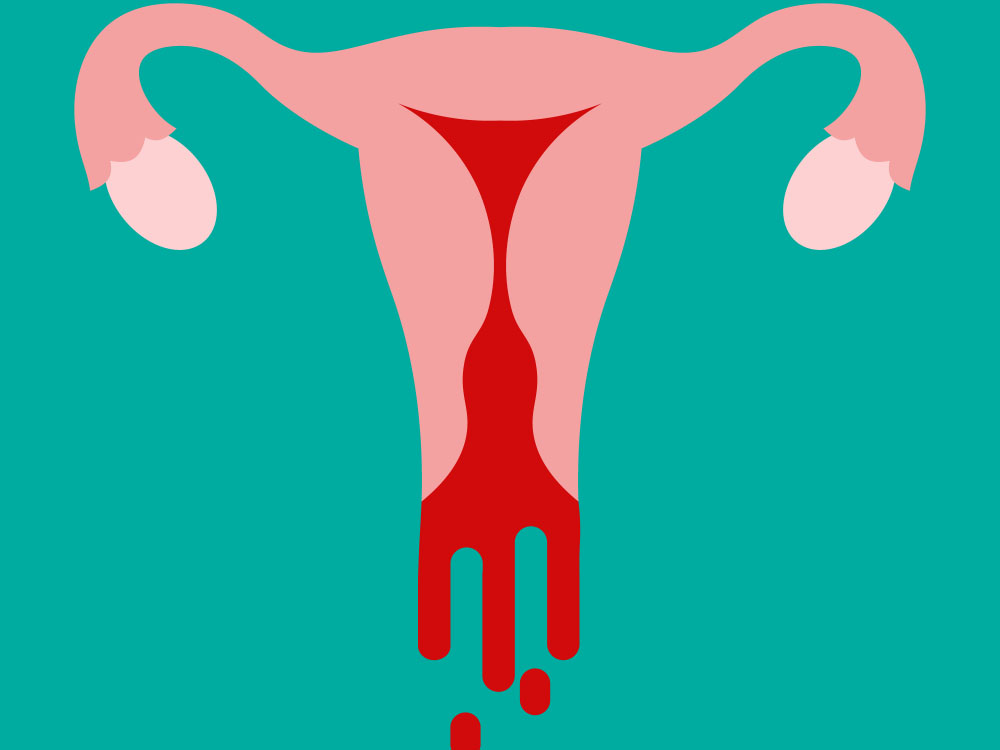Contents
- 13 Causes For Bleeding During Or After Sex and Explained
- 1. You Are Not Lubricated Enough
- 2. Your Cervix Was Rubbed
- 3. You Are Really On Your Period
- 4. You Are Having Sex For The Very First Time
- 5. You’ve Microtears
- 6. You’ve Vaginitis Or Cervicitis
- 7. You’ve Got Cervical Ectropion
- 8. You’ve Got an STD
- 9. You Get a Benign Growth
- 10. Your Estrogen Is Low
- 11. You’ve Got Endometriosis
- 12. You’ve Got Cervical Dysplasia
- 13. You’ve Got Cancer
- See a doctor for these symptoms
- How to treatment?
- Conclusion
Bleeding during or after sex (especially penis-in-vagina penetrative sex) is quite common. In its most fundamental, sex is all about the exchanging of bodily fluids. But there is one fluid that you do not need to see the sheets when you are nude –which will be blood.
The critical point to understand is there are a lot of reasons why you might be discovering some blood following a hot romp. A number of them are completely not dangerous, but for some, you are going to want to acquire medical treatment. To understand the root reason for the illness, you need to pay a visit to your physician.
So let us get into it. Why would you’re Vaginal Bleeding During or after Sex?
13 Causes For Bleeding During Or After Sex and Explained
1. You Are Not Lubricated Enough
Vaginas are self-lubricating, it is true. But not everybody makes enough of their all-natural lube to generate sex slick enough to feel good — or shield the delicate vaginal membranes. It is essential to get sufficient lubrication on your vagina to protect your skin. Therefore it does not get chafed from the in-and-out friction you are generating. The conflict could lead to little tears, which then could lead to blood.

If you do not make enough lubrication in your (no colour, everybody’s different, and some people are distinct daily, dependent in their menstrual cycle, how they feel that instant, you name it) that you can always incorporate a few store-bought personal lubrication to the mixture. Additionally, it is good to keep in mind that vaginas frequently have a little bit of time to get going — so remember that foreplay!
2. Your Cervix Was Rubbed
In penetrative sexual intercourse, occasionally your cervix can get rubbed. This will not occur in most places, but it is relatively standard. Many post-sex bleeding comes out of the cervix becoming rubbed or strike during intercourse — maybe not in a means that is uncomfortable at that moment, but with sufficient friction or bumping to make it bleed a wee tad.
If that freaks you out or becomes disagreeable, you could always experiment with places that are not too heavy, so that your cervix does not get touched just as much.
3. You Are Really On Your Period
This might appear obvious, but occasionally once you notice blood on your vagina, it is because you are on your period. It might be the beginning of your period, so the blood is sudden, or it might be somewhat later when you believed you had been completed but lo and behold — there is still more left indoors! This is entirely normal, and it is not much you can do about it, aside from placing in a vaginal lube if you’re squidged out with interval blood contained on your sexual encounter.
4. You Are Having Sex For The Very First Time
It is generally believed that the very first time you’ve got penis-in-vagina sex, you’ll bleed — as your hymen, a lot of thin membranes up in there will break (thereby”popping your cherry”). This is a misconception, as your hymen wears off naturally as time passes. This means there is also a big opportunity you won’t bleed at all of your very first time — based on how old you are when you begin having penetrative sex, and everything else you have been up to on your lifetime (riding a lot of horses or bicycles, by way of instance ).
It’s correct that in case you begin having sex as soon as your hymen has not worn away. Nonetheless, it may tear, and you’ll be able to bleed a little. Bear in mind that for the vast majority of individuals, the hymen consistently has a gap in it — that is how menstrual fluid and vaginal discharge undergo! Most importantly, this is not why you are bleeding during intercourse.
5. You’ve Microtears
A number of us enjoy our sexual demanding, and sometimes sex becoming harder than we ever planned. Rough sex may lead to little tears on your vaginal walls, which may consequently lead to bleeding. The opening and walls of your vagina may also get hurt, resulting in bleeding.
The fantastic thing is your vagina will cure itself immediately. The good news is that if you’ve had sex and consequently have some tears, then it is likely going to hurt if you attempt to have sex before you are treated. And needless to say, if your damages are caused by sex you didn’t desire, they may be more extreme and may be accompanied by additional physical and psychological signs of injury. (If that is you, keep in mind that there’s help and support out there.)
6. You’ve Vaginitis Or Cervicitis
These words equally seem rather stressful, but”-itis” only means the term it is changing is infected or inflamed. So vaginitis is infection or inflammation of the uterus. Also, cervicitis is infection or inflammation of the cervix. This may result in changes in vaginal discharge, itching, and pain (such as vaginitis), and changes in vaginal bleeding and discharge (such as cervicitis). Both may lead to bleeding after sexual intercourse.
Causes may include bacterial disease (like through an STD) but also merely frequent changes in your body throughout your period or as you get older. To work out the offender for the vaginitis or cervicitis, if you have, you ought to work with your health care provider.
7. You’ve Got Cervical Ectropion
Cervical ectropion, also called cervical erosion, is as soon as the cells which are generally within the liner of the cervix poke out around the cervical opening. These cells have been developed to be guarded within your uterus, so when they’re out in the fantastic big world of the vagina, they can get inflamed and might bleed easily.
This peripheral cell scenario is most frequently taken care of by teens, individuals on oral contraceptive, or individuals that are pregnant. At times you might require treatment to repair it, which may consist of freezing or cauterising cells. But for many folks, it only goes away by itself.
8. You’ve Got an STD
Some sexually transmitted diseases have the unwanted effect of future vaginal bleeding after sexual intercourse — combined with a ton of different symptoms. Chlamydia and gonorrhoea are bacterial infections which affect the cervix, causing bleeding in addition to other unpleasant side effects such as itching, burning, changes to vaginal discharge, and nasal congestion. In case you’ve got one of these illnesses, you can get antibiotics from your physician to get cured, which ought to eliminate the bleeding.

Another STD which may cause vaginal bleeding is trichomoniasis, a somewhat unknown STD that is a small parasite. Trichomoniasis disease may result in vaginitis, which, as we know, can lead to vaginal bleeding during intercourse. Trichomoniasis can be readily cleared up with an antibiotic, so if you notice this in addition to postcoital bleeding your vagina is itchy, it hurts when you pee, along with your discharge is rancid, frothy, foaming, and yellowish or grey-green, speak with your doctor to get tested.
9. You Get a Benign Growth
We have a tendency to think of any expansion that is not supposed to maintain our bodies as something frightening, but a lot of growths aren’t cancerous and therefore are often just bothersome. It is possible to find these benign polyps in your cervix or uterus, and these could lead to bleeding during sex as they’re delicate small things that bleed when touched. Polyps can go out on their own, but occasionally they need to be eliminated with surgery. Fortunately, this elimination is painless and easy, usually.
10. Your Estrogen Is Low
Low estrogen can lead to a multitude of physical and psychological challenges, among which is bleeding through sexual activity. This happens because estrogen helps to keep your vagina walls active. Lowered estrogen may lead to thinner vaginal walls, which could lead to inflammation or disease — and subsequently, could lead to vaginal bleeding during intercourse.
11. You’ve Got Endometriosis
Endometriosis is a condition wherein the lining of the uterus (known as your endometrium) grows out of your womb. This is problematic as these cells act like endometrial cells, resulting in all types of unpleasantries, mainly severe pain-related. Whenever these uterine cells jump the boat and then attach to the vagina or cervix, they could bleed through intercourse.
Endometriosis isn’t the most natural state to deal with, as well as know you’ve got. For the doctor to diagnose it, she must perform exploratory surgery to check the cells and see whether they’re endometrial. However, outstanding physicians may create a right suspect, and as soon as they’re inside, they could extract all of the offending cells.
12. You’ve Got Cervical Dysplasia
Cervical dysplasia is what physicians call precancerous changes to the tissues within your cervix. This is not cancer, but it’s a sign that later on there’s a possibility you might get cervical cancer. That is precisely what pap smears are searching for if you get them every year or two. Among the techniques to indicate that you’ve got these abnormal cells would be should you’ve got postcoital bleeding.
The purpose is to capture these precancerous cells when they’re only abnormal until they develop into cancer. Typically these cells will disappear on their own — it is only rarely they wind up cancerous. However, if your bleeding afterwards or during sexual activity is regular, you need to see a doctor to be sure.
13. You’ve Got Cancer
At length, the scary one. Postcoital bleeding may indicate that you’ve got vaginal, cervical, or uterine cancer. That is by no means the primary culprit your head must leap into if you notice a little bit of blood on your sheets after intercourse, but it’s a possible cause.
That is the reason if bleeding during or after intercourse is a frequent event for you, you ought to visit your physician to ensure. She’ll perform a range of tests to find out whether you’ve got cancerous cells. Even should you wind up with cancer cells within our bodies, it is by no means a departure sentence. There are lots of remedies for these cancer types.
See a doctor for these symptoms

The symptoms you might experience together with postcoital bleeding differ based upon the reason. If you are not menopausal, have no additional risk factors, and have just slight spotting or bleeding which goes off quickly, you likely don’t have to find a physician. In case you have any vaginal bleeding after menopause, then visit your physician straight away.
You should also ask your physician if you have any of these symptoms:
- Vaginal burning or itching
- Painful intercourse
- Burning or tingling sensation when urinating
- Reduced back pain
- Unusual vaginal discharge
- Intense stomach pain
- Heavy bleeding
- Nausea or vomiting
How to treatment?
Often, there’s not any single apparent reason for postcoital bleeding. Thus there’s not any direct plan of treatment.

Possible treatment choices include:
- Vaginal lotions are offered for sale online.
- Medicines for viral diseases
- Antibiotics for illnesses Brought on by bacteria, such as gonorrhoea, syphilis, and chlamydia
- Removal of polyps, especially the Ones That cause severe bleeding or look abnormal
- Surgical removal, cryotherapy, or electrocautery in most cases of cervical ectropion
- Low-dose vaginal estrogen treatment, in the Kind of creams, suppositories, or bands, for vaginal dryness
- Operation or treatment for cancer
Conclusion
Vaginal Bleeding During or after sex is generally a symptom of another condition. Many of them, like diseases and polyps, are curable. Occasional spotting after intercourse usually clears up on its own without health attention. If you are postmenopausal, immediately notify your physician about some postcoital bleeding.


